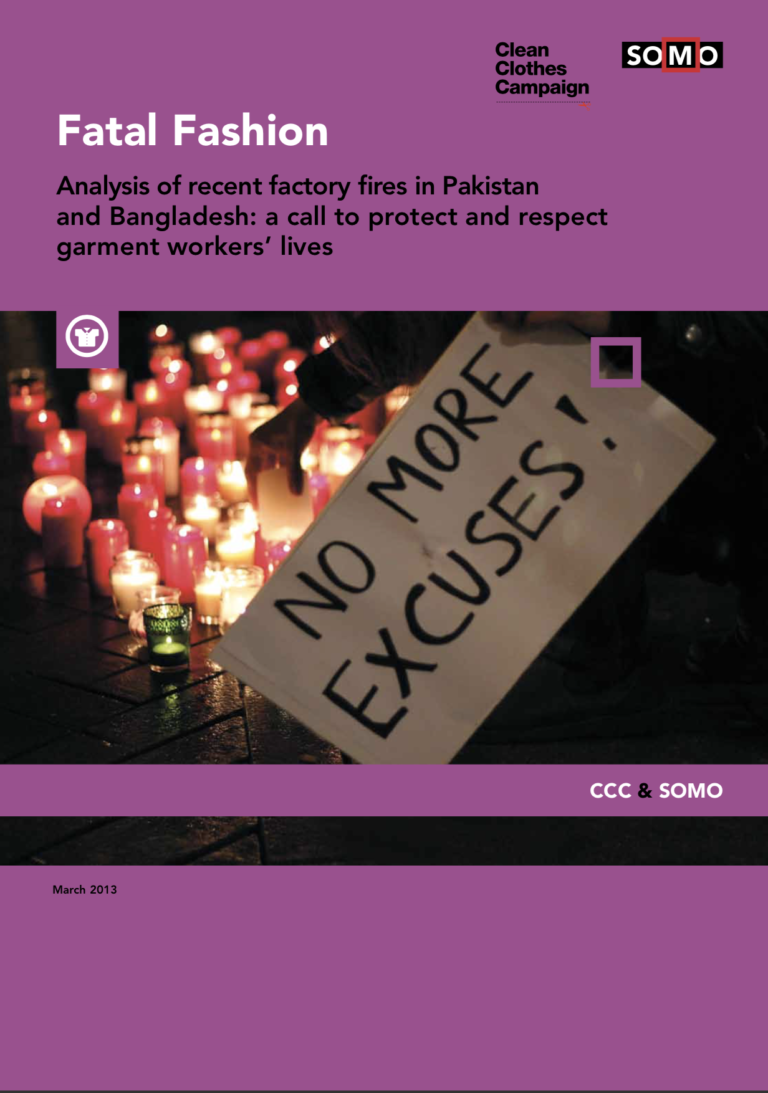This report describes in detail two recent cases of factory fires that swept through the facilities of two South Asian clothing manufacturers producing for international brands. These cases are exemplary for the poor health and safety conditions of thousands of factories in Asia, and the lack of responsibility taken by private and public actors throughout the supply chain. The specific factory fires analysed in this report have occurred at Ali Enterprises in Karachi, Pakistan, in September 2012; and at Tazreen Fashions Limited (hereafter referred to as Tazreen Fashions) in Dhaka, Bangladesh, in November 2012. Hundreds of workers were killed in horrendous circumstances, and many others were injured. Sub-standard buildings, poor emergency procedures, inadequate and blocked fire exits, and overcrowded workplaces resulted in an extremely high death toll.
The two cases treated in this report are symptoms of an ailing system. They reflect systemic flaws on the level of government protection of human rights and lack ofrespect shown by the garment industry for workers’ rights. The garment industries inBangladesh and Pakistan are notorious for their low wages, repression of unions and demanding and unsafe working conditions. With regard to fire safety, this means that workers are not in the position to monitor or report freely about safety hazards.
Read about these issues and more in the PDF below.

